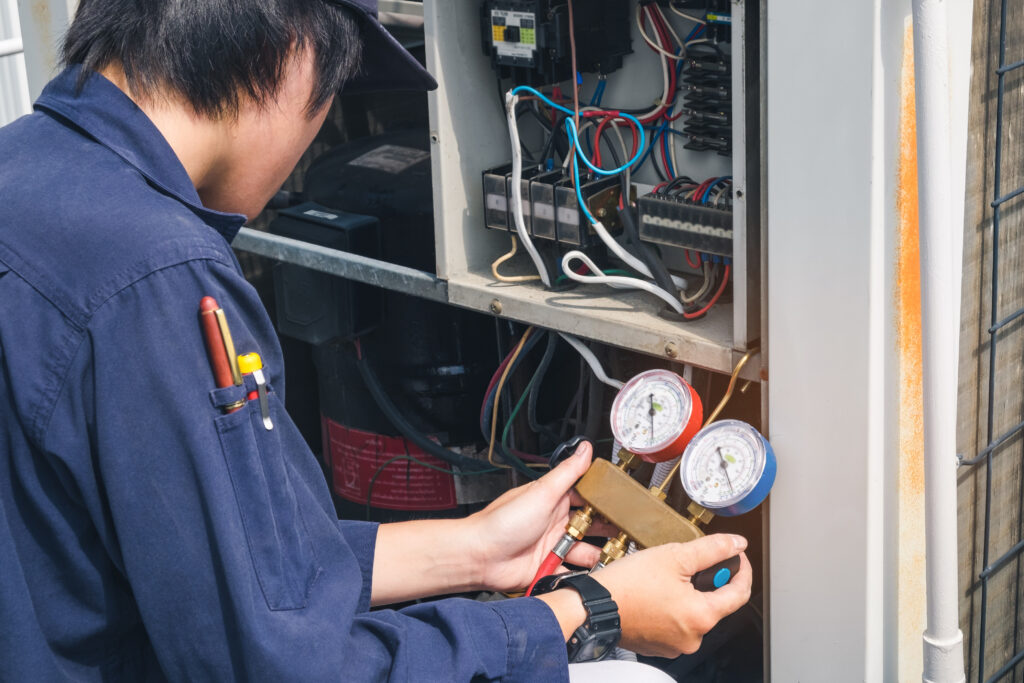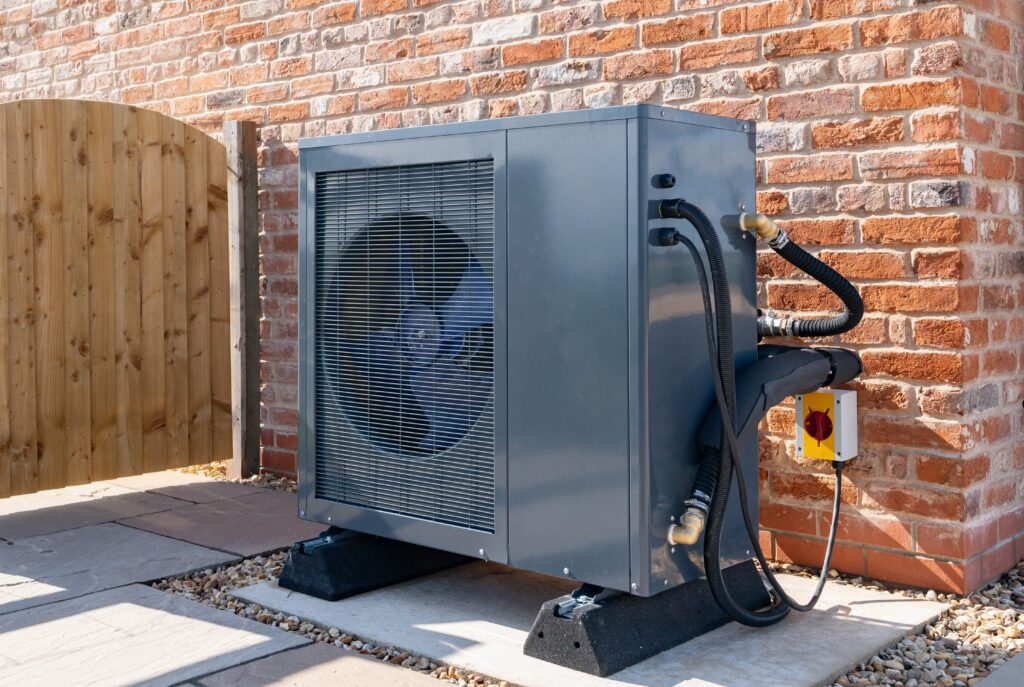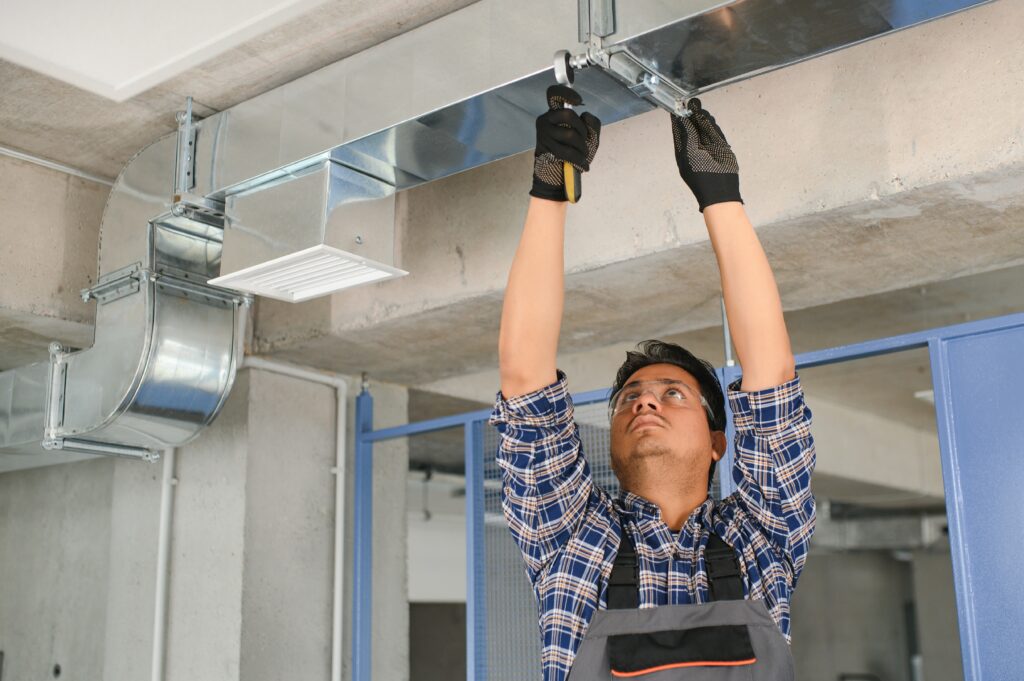While HVAC Systems Can Get Complex
The basic principles are relatively simple. Here's a breakdown of how your home stays comfortable:
Why Do We Need HVAC?
HVAC systems do more than just keep us warm or cool. They play a crucial role in:
Comfort:
Let’s face it, no one enjoys being too hot, too cold, or feeling sticky and humid. HVAC systems regulate temperature and humidity levels, creating an ideal indoor environment regardless of the weather outside.
Air Quality:
HVAC systems don’t just move air, they filter it. A good system can trap dust, allergens, pollutants, and other airborne particles, promoting cleaner, healthier air for you and your family.
Protecting Your Home:
Excess humidity can create a breeding ground for mold and mildew, potentially damaging your home’s structure and furnishings. HVAC systems help control indoor humidity, reducing the risk of moisture-related problems.
Efficiency:
Modern HVAC systems are designed with energy efficiency in mind. By optimizing temperature and airflow, they can help lower your energy bills compared to outdated or improperly sized systems.

How Does HVAC Work?
1. It All Starts with the Thermostat

The thermostat is the brain of your HVAC system. You set your desired temperature, and the thermostat signals to the rest of the system when it’s time to kick into gear.
2. Heating Your Home
Most homes use one of these primary heating sources:
Furnace:
Furnaces are the workhorses of heating, commonly using natural gas or propane to generate heat. A powerful blower fan circulates this warm air through your home’s ductwork.
Heat Pump:
These systems are energy-efficient marvels. In heating mode, they extract heat from the outdoor air (even in cold weather!) and transfer it indoors.
Boiler:
Boilers use hot water or steam to provide heat. The hot water travels through pipes to radiators or baseboard heaters, which release the warmth into your rooms.

3. Ventilation: Breathing Easy

The “V” in HVAC stands for ventilation, a crucial piece of the air quality puzzle. Ventilation systems bring fresh outdoor air inside and expel stale indoor air. This helps prevent the buildup of pollutants, odors, and excess moisture.
4. Cooling Your Home
Your home’s cooling typically relies on an air conditioner or, in the case of a heat pump, its cooling mode. Here’s the process:
Refrigerant:
The key to air conditioning is a special chemical compound called refrigerant. It has the unique ability to change states from liquid to gas and back again, absorbing and releasing heat in the process.
Compressor:
The compressor is the heart of the AC unit. It compresses the refrigerant, turning it into a hot, high-pressure gas.
Condenser Coil:
The hot refrigerant flows to the outdoor condenser coil, where it releases its heat into the outside air. A fan helps dissipate the heat efficiently.
Expansion Valve:
Now cooled back into a liquid, the refrigerant passes through an expansion valve, dropping its pressure and temperature even further.
Evaporator Coil:
The super-cold refrigerant travels to the indoor evaporator coil. As warm air from your home is forced over the coil, the refrigerant absorbs the heat, leaving the air cooled and dehumidified.
The Cycle Repeats:
The refrigerant returns to the compressor, transformed back into a gas, and the cooling cycle starts all over again!
Types of HVAC Systems
HVAC systems come in various shapes and sizes:
Split Systems:
These are the most common type, having both an indoor unit (like a furnace and evaporator coil) and an outdoor unit (condenser).
Packaged Systems:
These house all the components in a single outdoor unit, ideal for homes with limited indoor space.
Ductless Mini-Splits:
These systems are gaining popularity for their flexibility and efficiency. They use small indoor units in individual rooms or zones, eliminating the need for extensive ductwork.
Hybrid Systems:
These combine a furnace with a heat pump, providing optimized heating and cooling solutions depending on the season and your specific needs
